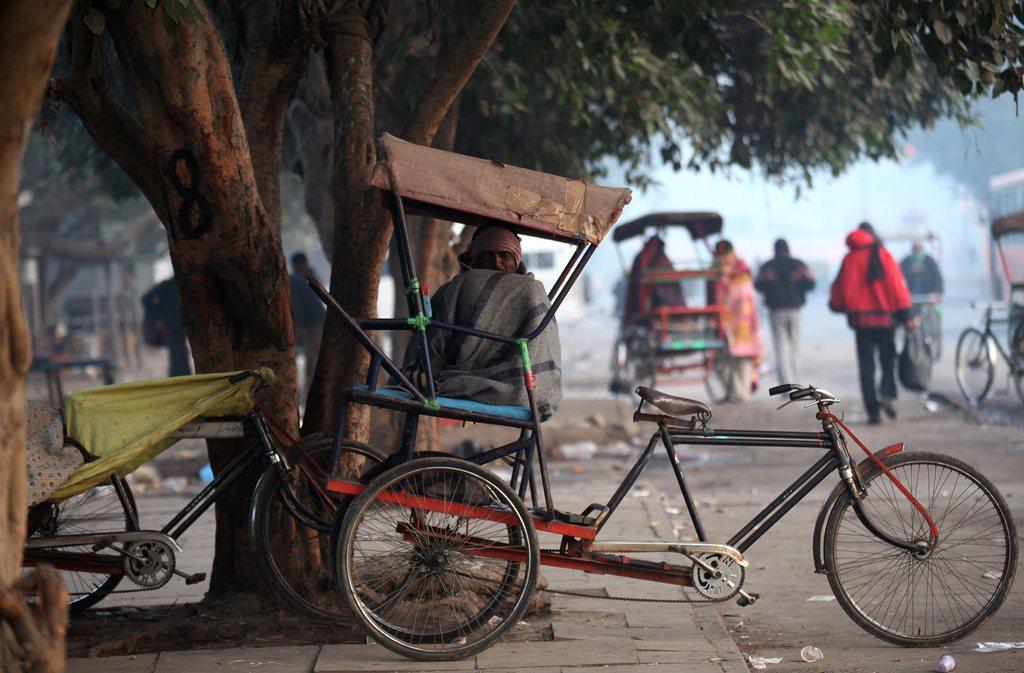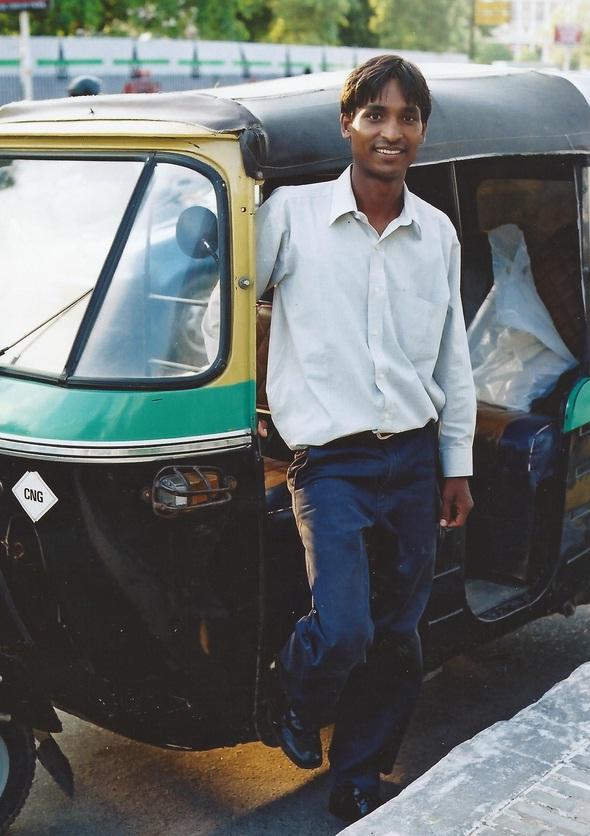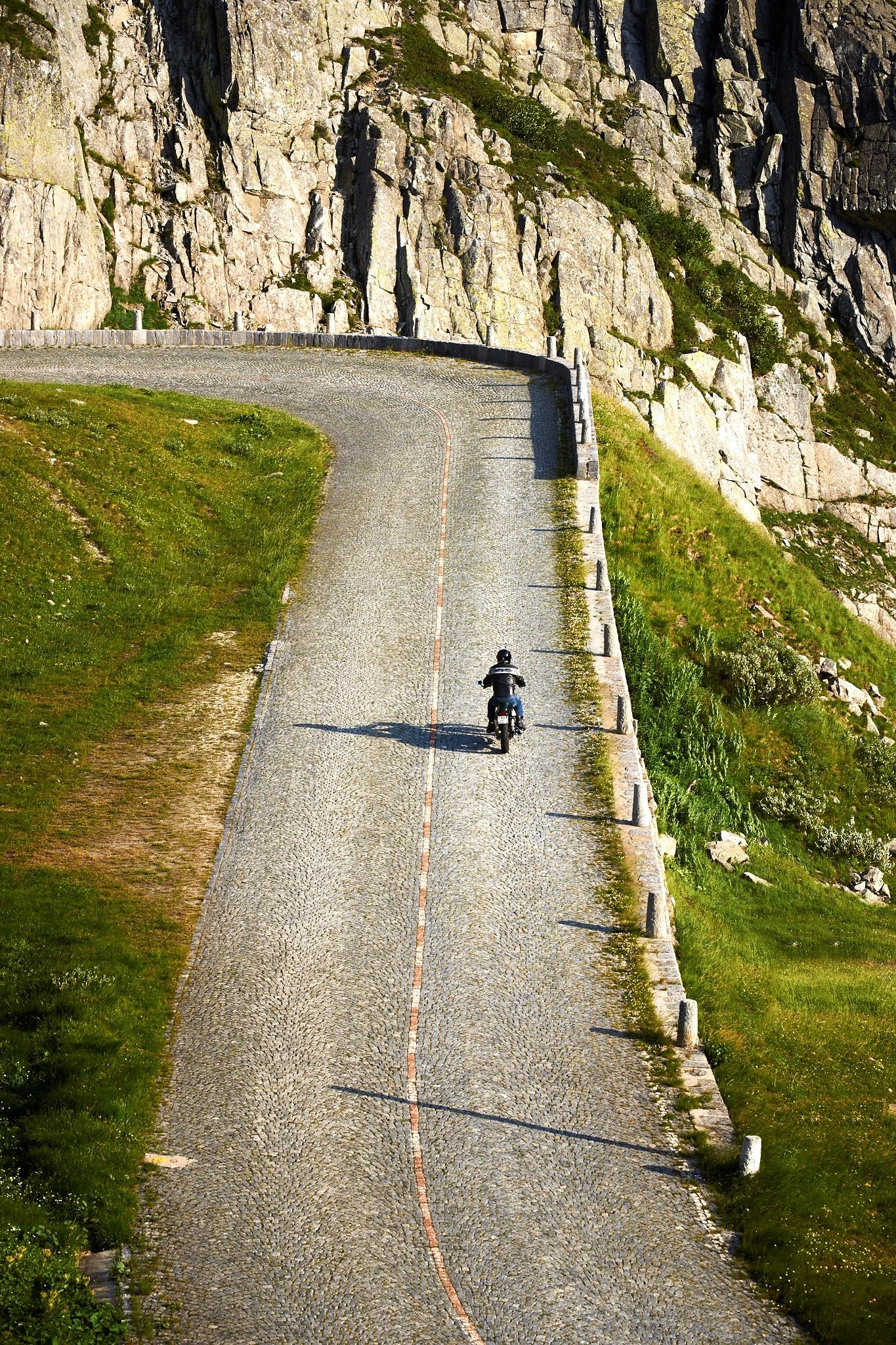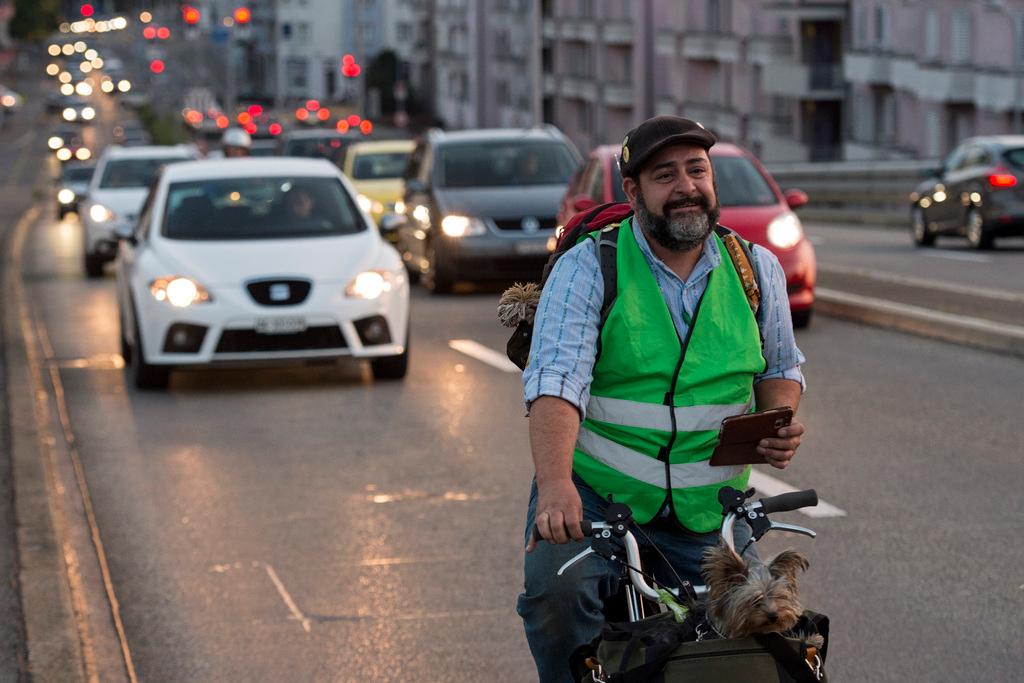Bern’s slumdog rickshaw driver

Former slum-dweller Sohan Lal used to drive a three-wheeled rickshaw on the chaotic streets of New Delhi. Love brought him to Switzerland, and he now ferries tourists around the Swiss capital Bern in an e-rickshaw.
It is a perfect spring afternoon in Bern with clear skies and abundant sunshine. The city’s railway station area is buzzing with human and vehicle traffic as the work day comes to an end. Amidst the orderly crowd, stands a vehicle that looks like nothing else around – a cycle-rickshaw.
It belongs to 39-year-old Lal who came to Switzerland from India a little over ten years ago. He offers swissinfo.ch a ride and a glimpse of the Swiss city he now calls home.
Watch 360° video. Drag screen around to choose what you want to see (open video in YouTube app for mobile phones)
Young entrepreneur
Lal was born in a Delhi slum – known locally as “jhuggis” – to parents who left their village in the neighbouring state of Uttar Pradesh in search of better prospects. But his father became mentally ill and his mother was forced to work as a construction labourer to support Lal and his five siblings.
“She would earn around INR10 [CHF0.14 or CHF1 at the-then exchange rate] a day after working for around nine hours carrying 20 bricks at a time up ten-storied buildings under construction,” he told swissinfo.ch.
Lal did not go to school. To help out he was forced work as a shoeshine boy from the age of nine. He’ll never forget the incident that changed his life.
“A German tourist came up to me to get his shoes shined,” says Lal. “After I finished, he gave me 50 rupees and left, which was 50 times more than what I was charging.”
That stroke of good fortune prompted a realisation that he could make more money by focusing on foreign visitors to Delhi. Instead of staying put in one spot like other shoeshine boys, he travelled around looking for generous overseas tourists. He also picked up English by overhearing their conversations and interacting with them, as well as spending some of his hard-earned cash watching Hollywood movies in cinemas.
Soon he had saved enough money to buy a cycle rickshaw and later even upgrade to a motorised autorickshaw. As a rickshaw driver, he continued his strategy of targeting foreign travellers by winning them over with his charm and basic English knowledge. He would then direct them to travel agencies in return for a commission.
“If the tourists booked a holiday with the travel agency, I would get a 50% commission,” he says. “I made a lot of money this way.”
In a matter of a few years, he had saved up enough to purchase a couple of second-hand taxis and start his own travel agency. But he didn’t stop driving his rickshaw.
“I would use the rickshaw to find clients for my travel business,” he says. “Instead of taking a cut from travel agencies like before, I would offer them chauffeur-driven tours in my own taxis.”

Swiss miss
Money was no longer a cause for worry for Lal. But another chance meeting with a foreigner would once again change his life. In 2001, he met a 19-year-old Swiss girl called Nadia at Connaught Circus, a famous shopping centre in the heart of Delhi.
“I knew she was the one for me even before I even spoke to her,” he says. “But she was fed up with India, as every person who approached her either wanted money or to sell her something.”
Lal invited her, along with her brother and a friend, for a cup of tea. Something clicked and Lal and Nadia visited each other in Switzerland and India for a couple of years until they decided to get married in 2004.
“I came to Switzerland with a suitcase and CHF300,” says Lal. “I spoke no German and had to start all over again.”
He worked at a number of odd jobs like washing dishes in restaurants or cleaning cars in garages. Anything he could find.
“There are no bad jobs but the toughest one I did was packing meat at a slaughterhouse,” he says. “It was tough to see the animals being killed.”
In 2012, his wife spotted a job ad looking for someone physically fit and ready to make their own money. Lal followed it up and ended up becoming a rickshaw driver. These e-rickshaws appear futuristic when compared to their Indian cousins, which are little more than bicycles with a seat at the back. With an aerodynamic shape, lightweight polyethylene cabin and a 48 volt motor powered by a lithium-ion battery, it is easier to tackle hills and heavy clients on an e-rickshaw.
The company that owned the rickshaws sold advertisement space on them and drivers could keep any money they made after deducting a sum for daily rental of the vehicle. Lal began making so much money that the company offered him a job contract. However, just as things were looking up Lal had a falling out with the company owners and found himself without a job.
“I bought a rickshaw from Germany but couldn’t use it due to obstacles from my old employers who wanted to preserve their monopoly,” he says.
Bouncing back
Lal was forced to sell his imported rickshaw at a loss. He borrowed money from friends to purchase a second-hand rickshaw already registered in Switzerland but couldn’t raise enough cash. However, thanks to a crowdfunding campaignExternal link he managed to collect CHF6,300 and buy his rickshaw.
He now makes a decent living with between his rickshaw businessExternal link and working in a restaurant as a runner. While his professional life may not sound glamorous, he has become a sort of minor celebrity in Bern, especially after being featured in local newspapers. Shopkeepers and restaurant workers wave to him as he passes by.
“I am not a hero but people like me here and it makes me want to stay,” he says.
He now has a Swiss passport and is a father of two daughters aged five and seven.
While most of his clients are Swiss, he gets a fair share of Indian tourists, particularly couples on their honeymoon.
“They begin with a one hour tour but often end up hiring me for four hours,” says Lal.
But not all his Indian clients are fans. Some of them look down on him, as driving a rickshaw is viewed as a lowly job in India.
“In Switzerland people look at you as a person and all jobs are respected here,” he says.
Despite the physical demands of driving a rickshaw and the competition he faces from his former employer turned rival, Lal has no regrets.
“I started from zero and am now a happy man despite the difficulties,” he says. “Even if I am still a rickshaw driver, I love this job as I get to meet a lot of people from different countries.”
Entrepreneurs in the Swiss tourism sector have embraced the opportunities offered by these three wheelers. Swiss cities like Zurich, Geneva, Bern, Basel, Thun and Biel offer rickshaw taxi services and tours and some are equipped with iPod audioguidesExternal link. For a really cheesy Swiss experience, tourists can even opt to have a fondueExternal link in one.
Most of the e-rickshaws are imported from Germany and have to be authorised by local officials for use in Switzerland. Rickshaws equipped with electric motors are considered as motorcycles and cannot travel on pedestrian or one-way streets. The vehicles have to insured and drivers also need a permit to park their vehicles in taxi stands.

In compliance with the JTI standards
More: SWI swissinfo.ch certified by the Journalism Trust Initiative





You can find an overview of ongoing debates with our journalists here . Please join us!
If you want to start a conversation about a topic raised in this article or want to report factual errors, email us at english@swissinfo.ch.